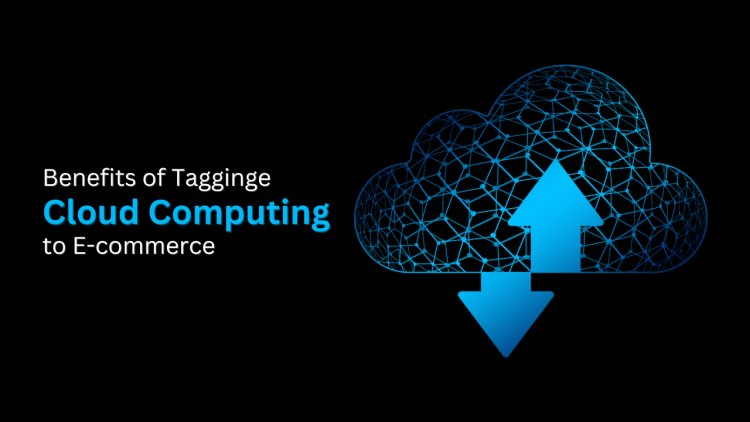Why is Tagging Cloud Computing to E-commerce Beneficial?
Discover how cloud computing for e-commerce enhances scalability, security, and performance, helping businesses deliver faster, seamless customer experiences.
Share this Post to earn Money ( Upto ₹100 per 1000 Views )

The combo becomes crucial for business success when e-commerce applications host their services on virtual servers.
We will gradually learn what cloud computing is, why it is called so, how it can be integrated with e-commerce, and how it benefits the business?
Cloud computing + e-commerce = Cloud E-commerce.
A distributed computing model scales up or down the ecommerce business’ server capacity as needed. A virtual server customizes user experience by offering real-time insights, automating tasks, reducing time, and improving performance. AI cloud services help in mitigating potential security risks.
Cloud providers like (1) Amazon web services, (2) Google Cloud, and (3) Microsoft Azure, (4) Salesforce, (5) IBM offer their platforms to cloud computing companies for running their websites.
Cloud eCommerce architecture comprises containerized microservices, connected to cloud data storage and analytics tools that allow e-commerce businesses to host and deliver their services and applications over the internet.
Why do eCommerce Prefer Running Their Websites on Cloud Servers?
Cloud storage ensures that data is not lost, which is especially important for companies with a single cloud provider and multiple locations. Ecommerce data saved on cloud servers is easy to share, access, and revise.
Data saved on physical servers might take time to come up in search results, but the data saved on the cloud can be found quickly. It is as easy as saving files to a digital folder like Google Drive.
Cloud hosting decreases prices, improves security, and speed, improves disaster recovery, and business continuity easier and less expensive. They feature multiple virtual machines, automated failover, distributed backups, and scaling. They carry various pricing models - pay-as-you-go, subscription-based, advertisement-based- so that retailers save money by subscribing to only what's necessary. Once a business signs a service level agreement, they get to consume seamless service.
Cloud computing allows e-commerce businesses to scale their computing power up or down based on demand. This means that companies reduce processing power during slower times and increase it during busy periods. It protects sensitive customer data with security measures like (1) automated backups, (2) disaster recovery, and (3) encryption.
E-marketplace businesses integrate with payment processors and CRM systems to enable teams to work together more effectively by allowing them to access and share data and resources from anywhere. Cloud computing servers use load balancing and auto-scaling to distribute traffic across multiple servers to ensure that the website remains available and responsive even during high-traffic conditions.
How to Implement eCommerce Cloud Services?
The widespread acceptance and deployment of cloud computing describes the means of delivering any software, business processes, messaging, and collaboration - to end users as a service wherever and whenever they need it. The cloud computing industry, cloud computer vendor platforms, contributions, and industry standards have resulted in well-defined concepts, models and technological innovations like fog, edge and dew computing, 5G networks, and distributed intelligence have resulted in cloud computing support Internet of Things.
To secure an e-commerce website, a cloud computing company needs to choose a secure e-commerce platform and web host, perform regular SQL checks, and regularly back up the website data. Assess your eCommerce platform’s specific requirements, including traffic volume, storage needs, and integration with existing systems. Check metrics of the utility provider, if it can handle load under varying conditions if the data can be backed up, if it facilitates migration without disruption, and if it ensures optimal performance.
Conclusion
Normally business consulting services, wholesale industries, and retail have resorted to saving their data in the cloud. This was just a brief overview of what ecommerce and cloud servers bring to the table. The benefits, features, and factors all merge into one as we search for the use cases and alignment of ecommerce applications on cloud servers. The result is more secure, highly performant applications that are accessible, and easy to use. We hope that this brings some clarity on how two different concepts combine to create something useful.
















